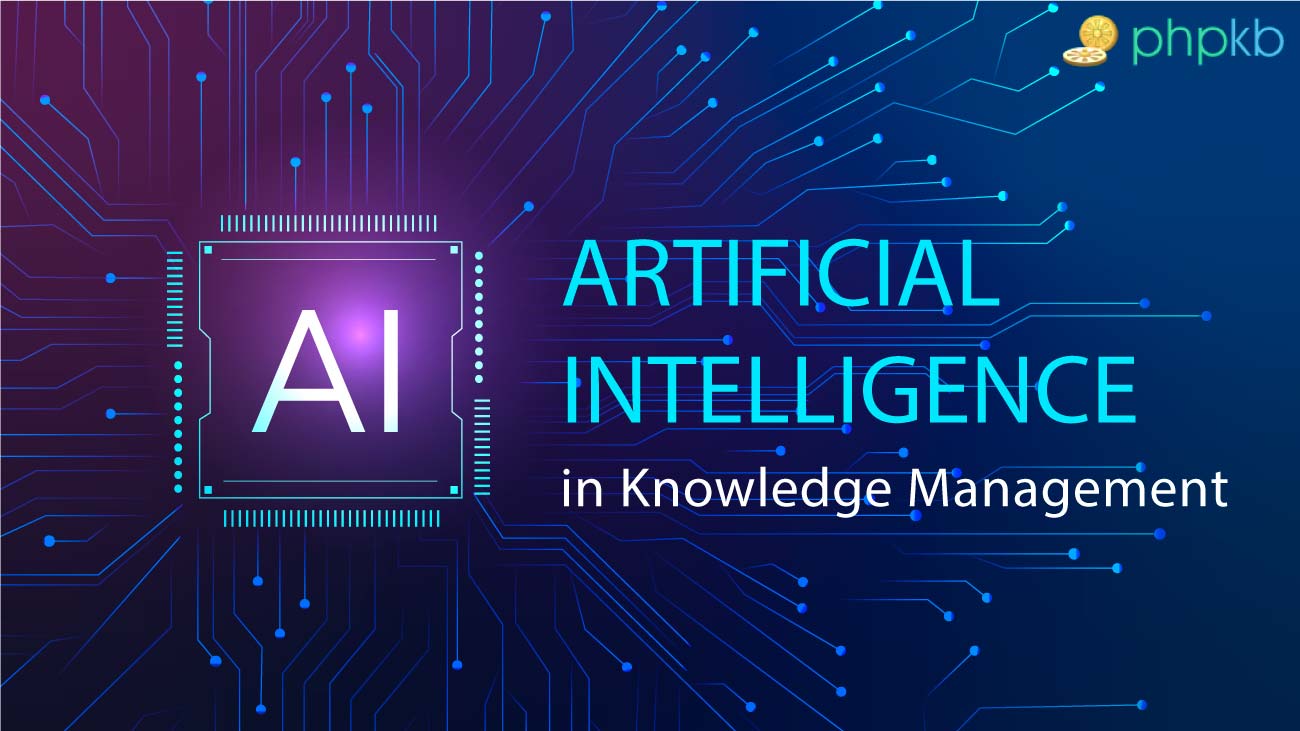Building a Knowledge Base with Artificial Intelligence
Estimated Reading Time: 4 MinutesKnowledge is the key to improving business performance and staying competitive. A company that can efficiently manage its knowledge is better equipped to respond to changes and challenges. Managing knowledge is challenging, time-consuming, and expensive. It is also an essential component of a company's performance. Therefore, many companies are turning to artificial intelligence (AI) to help with this task. In this article, we introduce artificial intelligence, explore its scope and applications, and explore ways to leverage this technology for knowledge management. Keep reading to learn more about artificial intelligence and its potential applications in the world of knowledge management.

What is Artificial Intelligence?
Artificial intelligence (AI) is a branch of computer science focused on the creation of intelligent machines. It includes the development of computer systems that can interact with humans and other systems, as well as machines that solve complex problems like playing chess or driving cars. AI researchers have developed machine learning algorithms to teach computers to learn from their own experiences. The AI market is growing rapidly, and new investment in AI-related startups has tripled in recent years. The United States alone will be investing $2 billion in AI this year. The knowledge of AI can enhance your decision-making ability as well as help you innovate on new business models and manage revenue and costs. Besides that, it can drive your team to achieve success!
Applications of Artificial Intelligence
AI is being used in knowledge base tools to improve knowledge management. It can be applied at the organizational level, for example, to design a system or workflow for managing knowledge. AI can also be applied at the individual level, which helps employees make decisions about what they need to know at any given time.
Why is AI Important for Knowledge Management?
AI is a powerful tool for knowledge management. AI can help companies with tasks like capturing, categorizing, and sorting new data, as well as finding patterns in that data. Digital tools for knowledge management abound, but AI stands out among them all. Digital tools include platforms, databases, and software programs that facilitate the process of managing knowledge within an organization. AI is uniquely suited to this task because it can learn from past interactions and use that information to make quicker and better decisions in the future. Essentially, AI has the ability to learn how people think so it can improve its responses over time. This means AI can collect and analyze large amounts of data quickly and efficiently – all while learning more about how people think as it goes along. It's an ideal fit for knowledge management where gathering, organizing, and analyzing large amounts of data is key to success.
Given the dynamic nature of Artificial Intelligence, where new concepts and applications are continually emerging, the inclusion of Artificial Intelligence into knowledge management software is inevitable.
Strategies for Implementing AI
There are two main strategies for implementing AI:
- Incorporating AI into existing knowledge management systems
- Implementing new AI-based knowledge management systems.
Strategy 1: Incorporating AI into Existing Knowledge Management Systems
Companies can use artificial intelligence to augment their existing knowledge management systems in various ways. For example, companies could use chatbots to answer customer service questions; use machine learning to recommend articles or podcasts to employees; or use natural language processing to analyze employee emails and discussions. These approaches provide improved customer service, increased productivity, and reduce the burden of mundane tasks on humans. One thing that should be noted is that if the goal is not to replace human involvement with artificial intelligence, but simply to improve it, then this strategy is the one most likely to succeed.
Strategy 2: Implementing New AI-Based Knowledge Management Systems
Companies can also choose to implement a new AI-based knowledge management system. This typically involves designing a product from scratch or starting with an existing system and replacing all human input with AI input in order to represent every aspect of company knowledge as data. The benefits of implementing a new system are often long-term as it may take time before benefits are seen while incorporating artificial intelligence into an existing system will provide results more quickly.
Conclusion
Knowledge Base Systems are an emerging area of artificial intelligence, particularly in natural language processing. They’re especially useful for businesses that need to keep track of user-generated information for FAQs, articles, videos, or other content.

Many businesses already use FAQs to answer common questions from customers, and many more are exploring the opportunity. However, FAQs can be difficult to find, organize, and manage. And as users are more and more aware of the benefits of online user-generated content, businesses are exploring how to leverage artificial intelligence (AI) to serve their customers better. Leveraging AI capabilities will revolutionize how knowledge management tools empower organizations in creating and managing their organizational knowledge. That day is not far when many knowledge management tools will start utilizing AI to enable better collaboration, encourage knowledge sharing, and boost agent productivity.
An intuitive knowledge base software to easily add your content and integrate it with any application. Get a privately hosted 30-day trial to take a deeper dive into PHPKB!
Book a Demo